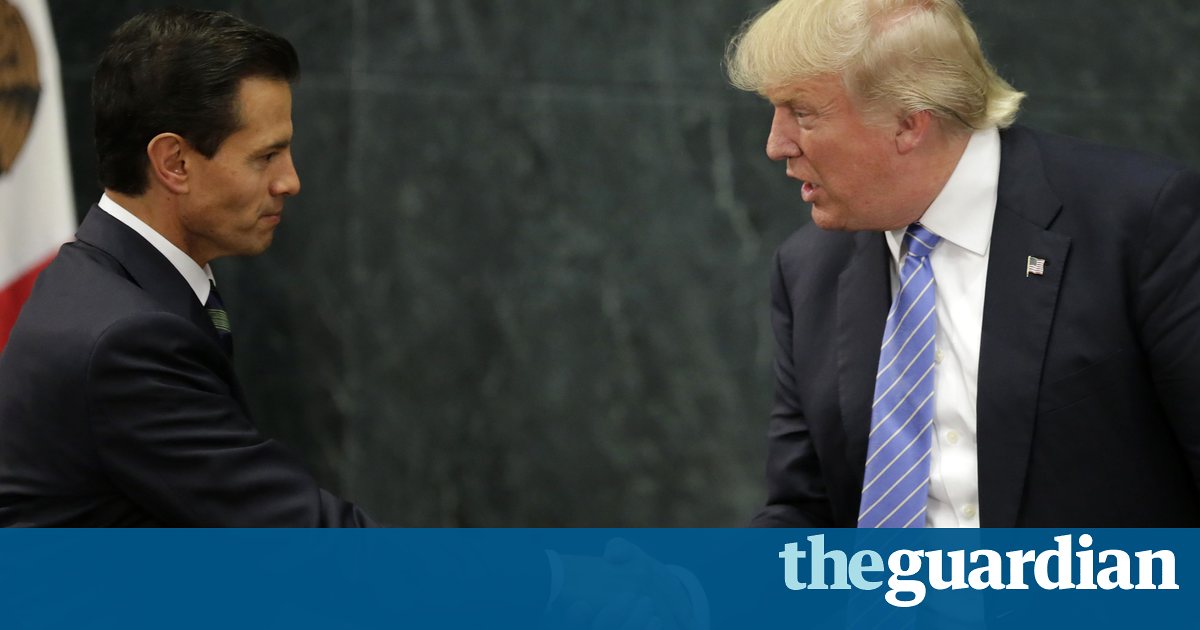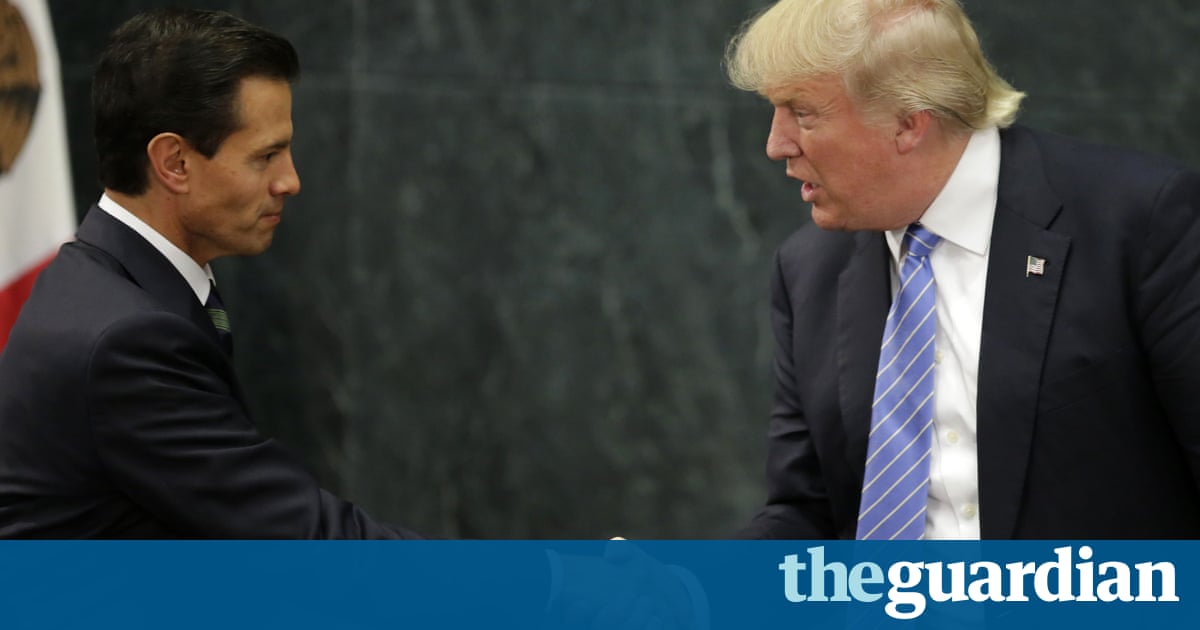Trump’s Nafta threats would severely harm US, Mexican chief negotiator says

Exclusive: Jaime Serra Puche warns that president-elects campaign pledge to end trade deal with Mexico would destroy regions economic competitiveness

Donald Trumps pledge to rip up existing trade deals with Mexico would inflict substantial damage on the US economy and kill the regions competitiveness on the world stage, according to the Mexican economist who led the countrys trade talks with the US.
In an exclusive interview with the Guardian, Jaime Serra Puche, Mexicos chief negotiator during the North American Free Trade Agreement (Nafta) negotiations, said scrapping the treaty and introducing protectionist measures as touted by the president-elect would amount to the US shooting itself and the region in the foot.
The degree of integration within North America has increased dramatically since Nafta 20 years ago, to the point where were not only trading with each other, but now producing many things together. Mr Trump needs to understand that introducing protectionist measures would introduce obstructions and self-inflicted problems on the region including the US, as we would all lose competitiveness vis-a-vis the Chinese, Europeans and other regions, said Serra.
Trumps shock victory threw the Mexican markets into turmoil last week, causing the peso to nosedive while Mexican stocks suffered their steepest fall in five years.
The property mogul vowed throughout his campaign to redraft or withdraw from Nafta which he described as the worst deal ever, claiming the trade treaty favours Mexico at the expense of American jobs. Trump also threatened to impose tariffs of up to 35% on Mexican-made goods and build a huge border wall.
Annual trade between the two neighbours is worth over half a trillion dollars, equalling $1.6bn of trading each day.
Mexican exports to the US have jumped six-fold since Nafta took effect in 1994, to $320bn last year. Almost 80% of Mexican exports head north of the border.
Meanwhile US exports to Mexico increased almost five-fold over the same period to $236bn in 2015. Mexico is the second biggest export destination for US products and for southern states such as California, Texas and Arizona, it represents their most important market. Some six million American jobs depend on trade with Mexico, according to the US Chamber of Commerce.
Abandoning Nafta completely would return Mexico-US trade relations to World Trade Organisation (WTO) rules, and see exports taxed according to the most favoured nation tariffs. These are fairly low higher for US products than Mexican but would almost inevitably trigger price hikes on everyday goods for consumers on both sides of the border.
But, Trumps threat to impose stiff import duties on Mexican cars and machinery parts suggests he would consider disregarding WTO rules. That would be an atomic bomb. If the largest economy in the world leaves or violates the WTO, that would present a very complicated scenario. Could it happen? Anything could happen, said Serra, a former minister in the neoliberal government of Carlos Salinas.
Amid such unprecedented threats, economic and business experts, including former president Vicente Fox, have called on the Mexican government to urgently diversify export markets and reduce the countrys dependence on the US.
Nafta was negotiated during the George HW Bush administration, augmented by Bill Clintons government, signed by both Republican and Democratic presidents and ratified by a Republican Congress. It took almost four years, and each country gained and lost things at the negotiating table, said Serra.
For instance cars made in Mexico cost around $3,000 less than US-manufactured cars. But in agriculture Mexico suffered a net loss of 1.9m jobs between 1991 and 2007 in the face of competition from subsidised American and Canadian farmers, according to a 2014 study by the Center for Economic and Policy Research.
If we have to renegotiate, each country will ask for something, not just America Mr Trump needs to understand that principle if he reopens Pandoras box, said Serra.
Trumps successful campaign was full of sweeping allegations and pledges, but the countries trade relationships are more complicated and intertwined than his rhetoric suggests.
For every $1 exported to the US, Mexican producers use around $0.45 of American goods or services and Canadians around $0.25, compared with only $0.04 by Chinese companies.
Our relationship with the US is much more complex than a typical outsourcing relationship. When we export to the US, it creates wealth in the US, said Serra.
Trump also condemned the Trans-Pacific Partnership (TPP), a broader trade deal between 12 Pacific Rim nations that Mexico had hoped to use to update Nafta and appease US critics.
On Friday, the deal was thrown into disarray when the White House conceded it would not pass to Congress before Trumps inauguration on 20 January. Without the US, the TPP is dead, said Serra.
He added: The majority of the worlds trade is now governed by free or preferential trade agreements, with regions rather than countries now competing against each other [Trumps] confrontational approach could kill the competitiveness of the region.
Mexicos central bank convenes later this week to debate whether a fiscal response at this stage is necessary.
Serra said: Paradoxically, threats from the US have made our products more competitive. But my advice would be to fix this quickly and understand that we are a region, and we all gain or dont gain fairly in the market, so lets stop this speculation which is hurting the peso and the other two countries now facing more competitiveness from Mexico before it turns into a self-fulfilling prophecy.
Read more: https://www.theguardian.com/world/2016/nov/15/nafta-donald-trump-mexico-economy